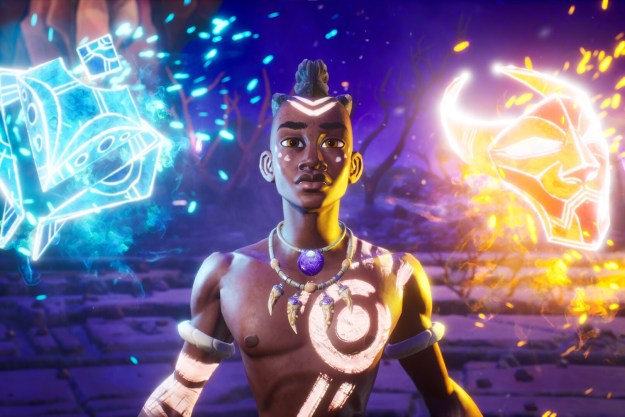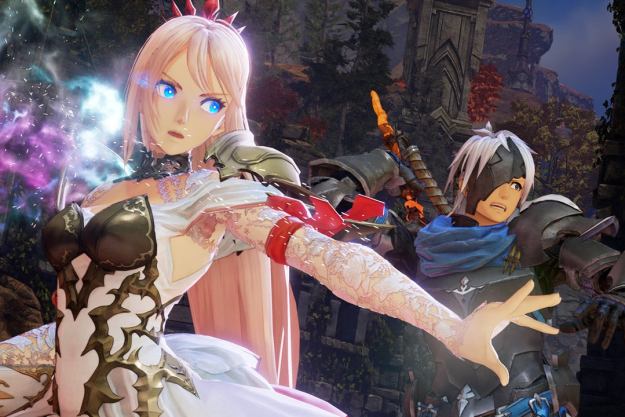Xbox chief Phil Spencer gave a possible glimpse into the future of gaming at Microsoft during an interview with Stratechry. Spencer brought up the possibility of Microsoft selling an Xbox streaming stick.
“You could imagine us even having something that we just included in the Game Pass subscription that gives you an ability to stream xCloud games to your television, and buying a controller,” Spencer said.
Spencer’s thinking was hypothetical, but presents a future that the game industry is seriously considering: A future without game consoles. With the rise of streaming services and cloud gaming, expensive console hardware is starting to feel old-fashioned. Google Stadia, and the recently announced Amazon Luna, offer a library of games that can be accessed through a streaming stick instead of a game console.
That future may be a ways off for Nintendo and Sony, who seem loyal to traditional console strategy, but Microsoft is in a perfect position thanks to Game Pass and xCloud.
To follow Spencer’s hypothetical, let’s imagine the Series X and Series S are the last generation of dedicated Xbox hardware. What does a consoles-free Xbox look like eight years from now?
Xbox streaming stick?
In the past, streaming sticks were used for video apps. Devices like Roku, Google’s Chromecast, and Amazon’s Fire TV let you enjoy Netflix or Hulu on virtually any display with an HDMI port.
In Spencer’s vision, Game Pass subscriptions could be bundled with a device that allows players to stream games to their TV in just the same way. Subscribers wouldn’t need to buy an Xbox to play first-party Microsoft titles, and could easily bring Xbox to any screen.
That’s in-line with what Google currently offers with Stadia. The cloud service features a premiere edition, which gives subscribers a Chromecast Ultra and controller for $100. Using that as a template, Microsoft could put together a similar package that gives players every tool they need to plug in and start playing.
Other than providing a library of games, a streaming stick could give players access to features like Xbox Live. That would allow for a consistent experience across devices that lets players manage their account or engage with friends.
For Xbox fans, the deal sounds like a no-brainer. A streaming stick makes a $500 console seem like an expensive and unnecessary stopgap. If it can give players access to the same first-party games that make Microsoft’s systems worth owning, a streaming stick becomes a tiny, portable Xbox.

Game Pass on every device
A streaming stick wouldn’t need to be the sole driver of Microsoft’s strategy. Game Pass is key, emphasizing the ecosystem it creates for players.
While the service is only currently available on PC and Xbox, it’s easy to picture it packaged as its own app eventually. Imagine smart TVs coming with Game Pass pre-installed alongside
There are two key factors to making this an unbeatable value: price and library size. Game Pass is currently one of the best deals in gaming, giving players access to hundreds of games for as low as $10 a month. That makes it an incredibly cost-effective service that pays off after playing two $60 releases a year. If Microsoft can maintain that low entry point even as game prices balloon, it’ll remain a must-have subscription.
A low price goes hand in hand with what games are available on the service. Game Pass is an especially exciting value because it includes every first-party Microsoft game. That means that players don’t need to own an Xbox to play Halo Infinite. The deal only gets sweetened with the addition of third-party titles and popular indies. If Microsoft can push that momentum, it’ll become harder for gamers to justify buying games carte blanche over shelling out for a flat monthly fee.
A big game library isn’t just important for getting people to subscribe. It gives incentive for other companies to put a Game Pass app on their services. With Microsoft buying up publishers like Bethesda, a Game Pass app might be the only way for Sony to get franchises like The Elder Scrolls or Doom on PlayStation.
Microsoft is holding a lot of cards in the gaming landscape, and there’s no reason to believe they’ll slow down their acquisitions anytime soon. For Game Pass to work as a stand-alone app, Microsoft needs to press that advantage to convince competitors that the service brings a specific value they won’t be able to get otherwise.
xCloud reaches its potential
The last piece of the puzzle is Microsoft’s most recent project, xCloud. The cloud streaming service is a more direct answer to
The service is currently in beta, with Microsoft’s FAQ saying it is on a “multi-year journey to bring Xbox games to mobile devices from the cloud.” That’s apparent in the current build, which is a ways off from offering a smooth gaming experience. For xCloud to become a viable arm of Microsoft’s business, the service needs stability tweaks to cut down on problems like lag and long load times.
Microsoft can’t control a player’s home internet connection speed, but there’s plenty it can do to ensure a smoother experience. For instance, it could introduce its own brand of gaming router custom-built to improve connectivity. That would allow players to dedicate more bandwidth to xCloud and deprioritize other unwanted traffic.
While a router may provide a home solution, partnerships with other companies are key to ensuring a stable on-the-go experience. Microsoft has already partnered up with Samsung to bring cloud gaming to Android devices. These relationships can create devices that are better optimized for xCloud and drive up adoption for the service.
There are plenty of obstacles to cloud gaming, but Microsoft is well-positioned to capitalize on an all-digital approach to gaming when the time is right. With this console cycle only just beginning, the company has a long runway to refine its cloud services and expand Game Pass before it needs to think about another box. By 2030, playing Xbox games could become as easy as streaming a movie today.
Editors' Recommendations
- April’s most anticipated RPG is coming to Xbox Game Pass
- Fallout 4 is finally getting free Xbox Series X and PS5 upgrades
- You should keep your eye on these promising Xbox indies
- Xbox Game Pass gets its first Activision Blizzard game very soon
- Everything announced at the March 2024 Xbox Partner Preview




